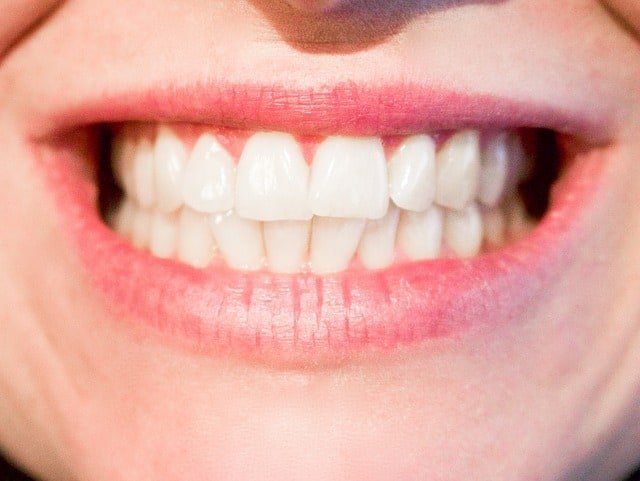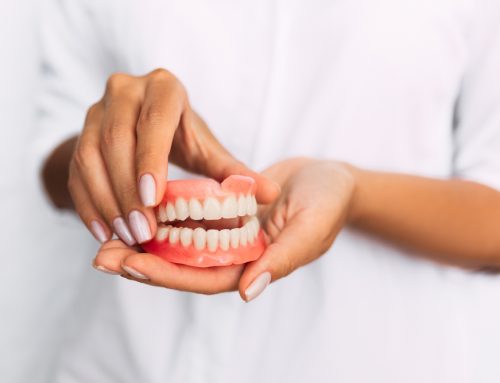
Smooth teeth indicates that your dental hygiene techniques are successful in removing the plaque or tartar from your teeth.
One way to check the smoothness of your teeth is by using the Tongue Test. This intuitive test uses your tongue to check your teeth at the gum line to see if the surfaces are smooth and slick for each tooth. The easiest place to start this test is your upper front teeth, as they are the most accessible for most people. Next you should try to test the more difficult regions, including the lower back teeth on the inside.
Another test you can do at home is the Floss Check Test. In this test you take some floss and rub it back and forth on the surface of your teeth. If you have successfully removed all of the plaque from your teeth, you should hear a squeak sound indicating your teeth are healthy and good to go. Note that unwaxed floss works best to get that “squeaky clean” sound.
Use these tests to determine if there are any discrepancies in the smoothness or slickness for your teeth. If you detect any irregularities or roughness, your teeth might be building up unwanted plaque.
What does it mean when your teeth feel fuzzy?
Most people expect to have smooth and slick surfaces on their teeth when doing the above tests. If you do these tests and find your teeth do not feel smooth and slick but instead “fuzzy,” you might be thinking that something is wrong. While you might be right, there are also some instances where you should not worry as described below.
So what are the causes of fuzzy-feeling teeth?
A lot of people report a fuzzy feeling on their teeth in the morning when they wake up. Usually after brushing and flossing their teeth it goes away. This is because plaque builds up overnight while you are sleeping. After all, you are not brushing your teeth or eating crunchy plaque-removing foods while you are asleep. On top of that, saliva production is minimized when you are sleeping thereby lowering the frequency of your saliva “washing away” the plaque and bacteria.
Bacteria multiplies and begins to adhere to your teeth and gums when you are asleep. Over night, the bacteria builds a coating to protect itself so that by the time you wake up you have a mouthful of plaque buildup. This is both unpleasant and unhealthy. Fortunately, we can do something about it. I’m sure you’ve heard it before but it can’t be said enough – brush and floss your teeth when you wake up in the morning!
If you are unsuccessful in your dental hygiene techniques, your teeth will continue to form plaque and the aforementioned fuzzy feeling won’t go away. Below are some steps you can take to assist in removing that unusual fuzzy feeling:
- Reduce the amount of starchy and sticky foods you eat.
- Drink plenty of water when eating to help wash your teeth out.
- After your meal, snack on a crunchy, plaque-removing food like an apple.
- Brush and preferably floss your teeth thoroughly after each meal.
- Reduce the amount of food you consume that contains excessive sugar.
What to do if your teeth still feel fuzzy
If you are following the above steps and still have fuzzy or rough teeth after you brush, you might need to examine your brushing techniques. Are you brushing for at least two minutes each time you brush your teeth? Are the bristles on your toothbrush strong and robust, or does your toothbrush need replacing? A good tooth brushing technique will go a long way in removing plaque formations and thus the fuzzy feelings your teeth might have.
If you’re convinced your brushing techniques are on point, you might be due for a dental visit. If plaque is allowed to build up over time, a hardened version will start to form called tartar. It is recommended that you go to the dentist once every six months in order to remove this plaque or tartar in its entirety. Doing so will rid you of the fuzzy teeth feeling as well as keep you from getting gum disease. If it’s been quite some time since your last dental visit, consider calling us or booking an appointment on our website today to schedule a check up.
Caution: Bleeding
It is normal to notice some minor bleeding every once in a while when brushing or flossing your teeth. However, if you notice your teeth bleeding longer than for a few days or if it is painful when they do bleed, your gums might be unhealthy. This kind of bleeding indicates an inflammation of the gums (gingivitis) which can lead to severe gum disease (periodontitis) if not treated by a dental hygienist. In the worse cases of this gum disease, your teeth might fall out. If you suspect you have the early stages of gum disease, please give us a call to schedule an appointment with one of our dental hygienists to ensure that your teeth and gums remain healthy!



